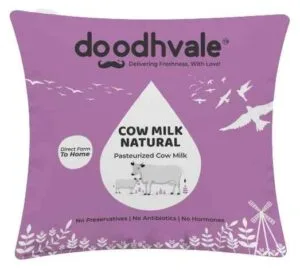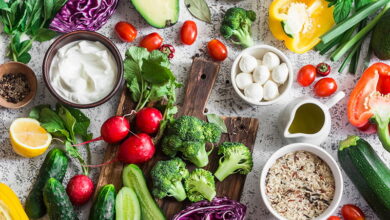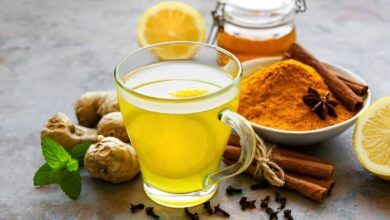
Cow milk has been a staple in human diets for centuries, painting a picture of cozy mornings with cereal and steaming mugs of cocoa. But with the rise of plant-based alternatives and increasing awareness of individual dietary needs, the question begs asking: Is cow milk really all that healthy? Let’s dive into the good, the not-so-good, and the “it depends” of this popular beverage.
The Case for Cow Milk
Cow milk is a nutrient powerhouse, packing a punch of essential vitamins and minerals. It’s a good source of:
Calcium: Crucial for strong bones and teeth, especially important for children and adults as they age.
Vitamin D: Often nicknamed the “sunshine vitamin,” it helps our bodies absorb calcium and is linked to improved mood and immune function.
Protein: Essential for building and repairing tissues, keeping us feeling full and energized.
Other nutrients: Riboflavin (vitamin B2), vitamin B12, potassium, phosphorus, and iodine, all playing vital roles in various bodily functions.
Doodhvale cows are treated like royalty, living on state-of-the-art farms with 24/7 vet care and a focus on their happiness. They’re not pumped with hormones or antibiotics, and their milk is rigorously tested to ensure it’s safe and healthy for you and your family.
Beyond its nutritional profile, cow milk offers several practical benefits
Versatile: Enjoy it plain, in cereal, smoothies, baked goods, or use it as a base for creamy sauces and soups.
Readily available: Found in most grocery stores with various fat content options (whole, reduced-fat, skim) and even lactose-free versions for those with intolerances.
Affordable: Compared to some plant-based alternatives, cow milk can be a more budget-friendly choice.
Despite its benefits, cow milk isn’t perfect for everyone. Here are some potential drawbacks to consider:
Lactose intolerance: This digestive issue affects individuals who have difficulty breaking down lactose, the sugar naturally found in milk. Symptoms can include bloating, gas, and diarrhea.
Saturated fat: While some versions of cow milk are lower in fat, whole milk contains saturated fat, which when consumed in excess, can contribute to heart disease.
Potential for allergies: Some people may be allergic to the proteins in cow milk, experiencing reactions like hives, rashes, and even anaphylaxis in severe cases.
Ethical concerns: The dairy industry raises concerns about animal welfare and the environmental impact of large-scale farming practices.
It Depends
Ultimately, whether cow milk is “healthy” for you depends on several factors:
Your individual health: If you’re lactose intolerant, have a dairy allergy, or are watching your saturated fat intake, cow milk might not be the best choice.
Your dietary preferences: With the plethora of plant-based options available, you may find suitable alternatives that align with your dietary choices or ethical concerns.
Moderation is key: Even if you tolerate cow milk well, enjoying it as part of a balanced diet and not relying on it as your sole source of nutrients is crucial.
Cow milk can be a valuable source of nutrients for many people, but it’s important to be aware of its potential downsides and consider your individual needs. Remember, a healthy diet is all about variety and balance so explore and find what works best for you!
Additional Points to Consider
If you’re concerned about the environmental impact of cow milk, consider purchasing it from local farms with sustainable practices.
There are various plant-based milk options available, such as soy milk, almond milk, oat milk, and coconut milk, each with its own unique nutritional profile.
Consulting a healthcare professional or registered dietitian can help you make informed decisions about your dietary needs and the role cow milk can play in your overall health.
Conclusion
There’s no simple answer to whether cow milk is inherently “healthy.” It offers a good source of essential nutrients but comes with potential drawbacks like lactose intolerance, saturated fat content, and ethical concerns. Ultimately, the decision of including cow milk in your diet depends on your individual health, dietary preferences, and values.
FAQ (Frequently Asked Questions)
Is cow milk necessary for getting enough calcium?
No, cow milk isn’t the only source of calcium. Leafy green vegetables, fortified plant-based milks, tofu, and even some nuts and seeds can contribute significantly to your daily calcium intake.
What are some alternatives to cow milk if I’m lactose intolerant?
There are numerous plant-based options available, including soy milk, almond milk, oat milk, and coconut milk. Each has varying levels of protein, calcium, and other nutrients. Choosing fortified varieties can help ensure you’re getting similar essential elements found in cow milk.
Is organic cow milk healthier than regular cow milk?
While organic milk comes from cows that haven’t been treated with antibiotics or growth hormones, the nutritional content isn’t significantly different from regular cow milk. The choice often comes down to personal preference and supporting organic farming practices.
Can I still enjoy cow milk if I’m concerned about the environment?
Purchasing cow milk from local farms that prioritize sustainable practices can help reduce your environmental footprint compared to conventionally sourced milk.
Consult a healthcare professional or registered dietitian for personalized advice regarding your dietary needs and the role of cow milk in your health.
Explore a variety of options and find what works best for you, considering both your health and personal values.



